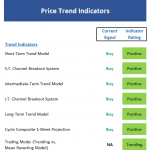In the years after its 2009 bankruptcy, Chrysler looked for a dedicated lender to help customers “finance their cars quickly”…which was code for a lender who could help the struggling OEM expand their market share by making extremely risky loans to subprime borrowers all while laying off the credit risk to unsuspecting pension funds.As such, Chrysler ultimately picked Santander due to its expertise in “automated decisioning”…which was code for the ability to advance credit without actually performing income verification tests on borrowers.
For a time, Chrysler and Santander enjoyed a perfect symbiotic relationship as it offered Santander an opportunity to aggressively expand in the U.S. subprime loan market, and Chrysler, the perennial third wheel among the “Big Three,” was able to target customers that were previously deemed untouchable by lenders.Of course, as Bloomberg points out today, the problems surfaced almost from the start.
Many of them, detailed in the settlement between Santander and authorities in Delaware and Massachusetts, recall some of the excesses of the subprime housing era.
Attorneys general in both states alleged Santander enabled a group of “fraud dealers” to put buyers into cars they couldn’t afford, with loans it knew they couldn’t repay. It offloaded most of the debt, which often had rates over 15 percent, reselling them to yield-hungry ABS investors.
State authorities also said an internal Santander review in 2013 found that 10 out of 11 loan applications from a Massachusetts dealer contained inflated or unverifiable incomes. (It’s not clear whether this particular case involved a Chrysler dealer.)
Santander kept originating the dealer’s loans anyway, even as they continued to default “at a high rate,” the authorities said.
Some dealerships even asked Santander to double-check customers’ incomes because they didn’t trust their own employees, the authorities said. They also said the lender didn’t always oblige because that would put it at a “competitive disadvantage.” At the time of the settlement, Santander said it was “totally committed to treating its customers fairly.”












Leave A Comment